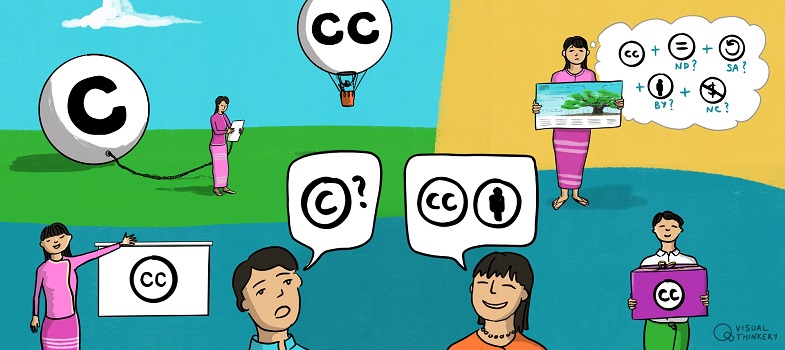The Creative Commons movement
Since 2001, a global coalition of people has formed around Creative Commons and open licensing. This includes activists working on copyright reform around the globe, policymakers advancing policies mandating open access to publicly funded educational resources, research and data, and creators who share a core set of values.
There are lots of ways to get involved in Creative Commons. CC has a formal CC Global Network [Tip: hold Ctrl and click a link to open it in a new tab. (Hide tip)] , which includes lawyers, activists, scholars, artists, and more, all working on a wide range of projects and issues connected to sharing and collaboration. The CC Global Network has more than 500 members, and 40-plus Chapters around the world. Indonesia, Taiwan, Japan, India, Bangladesh and Nepal all have CC Chapters. As at August 2020 there was no Myanmar Chapter of Creative Commons.
The CC Global Network is just one player in the larger open movement, which includes Wikipedians, Mozillians, open access advocates, and many more.
Open source software is cited as the first domain where networked open sharing produced a tangible benefit as a movement that went much further than technology. The Conversation’s explainer of other movements adds other examples, such as open innovation in the corporate world, open data (see the Open Data Commons) and crowdsourcing. There is also the open access movement, which aims to make research widely available, the open science movement, and the growing movement around open educational resources.
Creative Commons licences
